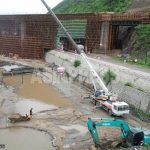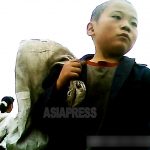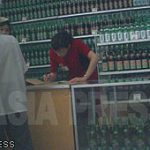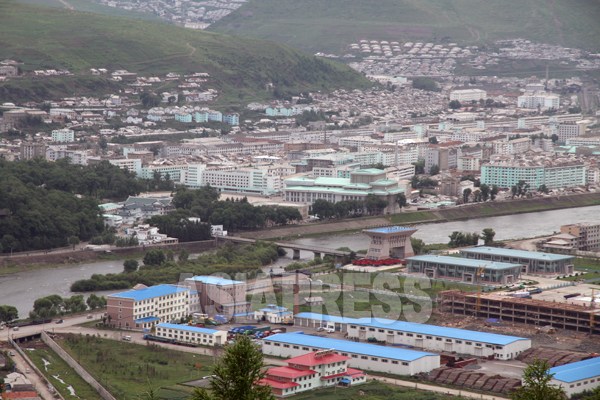
■ Transshipments of coal
In February 2020, the UN Security Council’s North Korea Sanctions Committee released an annual report to the media with particularly noteworthy sections on North Korean transshipments of coal.
On February 12, Kyodo News and Jiji Press reported, “From January to August of 2019, North Korea smuggled about 3.7 million tons of coal worth an estimated total of $370 million. About 2.8 million tons of coal, roughly 70% of the total, is believed to have been exported by transshipment between North Korean and Chinese vessels at sea. In addition, North Korea exported at least 1 million tons of sand, worth a total of $22 million to Chinese ports. The United States claimed that North Korea is, in turn, receiving imports of refined oil by transshipment. This amount is said to exceed the sanction resolution’s annual import cap of 500,000 barrels several times over.
It is hard to believe that petroleum refiners were not aware that 3.7 million tons of coal had been smuggled by transshipment. It would have taken a 10,000-ton cargo ship to make 370 voyages to receive all the coal. Cranes at the Chinese ports would have also taken considerable time to unload the coal after each transshipment. The scale of such an operation would have made it near impossible to avoid surveillance by satellites and aircraft. Video evidence of the transshipments, collected and released by Japan’s Self-Defense Forces, however, only shows hoses being used to transport liquid contraband between ships.
ASIAPRESS reporting partners in North Korea have conducted a number of investigations of large coal mines around South Pyongan Province and North Hamkyung Province. These local investigations, however, have shown that North Korea’s mines do not currently appear to be in full operation.
More information is needed to determine whether or not coal is being smuggled via transshipment at the scale suggested by the UN Sanctions Committee’s annual report.
■ Transshipments of seafood
Seafood is also said to be actively smuggled off the west coast of North Korea through transshipment. A Korean-Chinese resident of Donggang, China, 40 kilometers from Dandong, Liaoning Province, serves as an interpreter for ones of the ships involved in smuggling. According to him, seafood purchased at sea from North Korean fishing boats varies from season to season and ranges from shellfish to crabs to frozen, dried, or live fish.
To contact North Korean vessels at sea, Chinese ships use North Korean-made mobile phones provided by the North Koreans themselves. After meeting at sea or on a small island, the Chinese smugglers will check the quantity, quality, and price of the North Korean goods. According to the interpreter employed by the smugglers, the ship for which he worked was relatively large and had hired the services of 4 interpreters in total.
In 2018, shortly after seafood became subject to international sanctions, it was said that North Korean smugglers requested Chinese counterparts to provide South Korean-made cosmetics and clothing. Demand for these luxury items suddenly stopped in 2019, however, when they were made subject to a crackdown. Like “state smuggling” operations at the northern border, North Korean ships are also said to be supervised by customs officials, party officials, and security officials. This did not perturb the Korean-Chinese interpreter, however, who said, “I got close to the North Korean sailors and would drink and play games with them.”
It is hard to know the exact scale of the seafood smuggling but dozens of smugglers, large and small, are said to operate from Donggang. Freshly-caught seafood is said to be sold in markets and restaurants of Dandong and Shenyang, as well as distributed wholesale to various parts of China. However, according to the Korean-Chinese interpreter, transshipments of seafood have been stopped completely due to Chinese regulations and North Korean quarantine measures put in place to stop the spread of COVID-19. (ISHIMARU Jiro)
※ ASIAPRESS contacts its reporting partners in North Korea through smuggled Chinese mobile phones.
- “Hunger Will Kill Us Quicker Than Coronavirus”: 91% Decline in Trade Leaves Vulnerable Locals Facing Starvation (2020-04-28 15:51:16)
- <Inside N. Korea> Collateral Damage: Border Blockade Designed to Counter Coronavirus Leads to Deadly Drug Shortage (2020-04-28 10:27:06)
- <Breaking News from N. Korea> “Who Would Be Next?”: Residents React as Rumors of Kim Jong-un’s Surgery Begin to Spread from the Border Regions (2020-04-23 17:47:13)
- <Breaking News Interview> “Nobody Knows, Nobody Cares”: Workers’ Party Official Surprised to Learn of Leader’s Surgery, Reports No Changes Within N. Korean Society (2020-04-23 17:44:25)
- “We Don’t Want to Meet”: Fearing Coronavirus Infection, China Rebuffs N. Korean Advances at the Border and Delays Resumption of Trade to Late-May (2020-04-20 17:41:18)
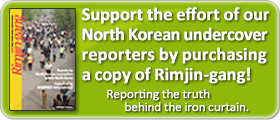 Editor’s notes on North Korean reporters
Editor’s notes on North Korean reporters
ALL REPORTS >>>
ARCHIVE(pdf) >>
DPRK MAP >>
